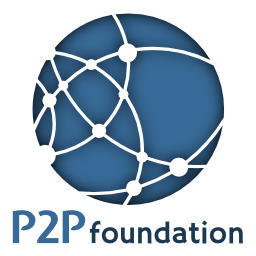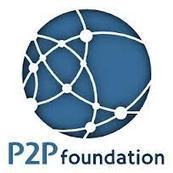“There is an alternative to disaster capitalism and to the dictatorship of the financial markets. It requires a revolution in our concepts about money, share-capital, labour-remuneration and land-real estate. In this first volume by Michel Laloux, we discover a triple circulation of money – for everyday consumption, financing enterprises and the contribution to the non-merchant economy. This triple circulation of money is therefore at the service of the real economy and dispenses with the fictitious and with speculation. Three forms of monetary institutions are conceived as a new type of public service, run by civil society. These institutions will organise this threefold circulation, without recourse to investors nor to a central bank.
Research and publish the best content.
Get Started for FREE
Sign up with Facebook Sign up with X
I don't have a Facebook or a X account
Already have an account: Login
on peer-to-peer dynamics in politics, the economy and organizations
Curated by
jean lievens
 Your new post is loading... Your new post is loading...
|
|












